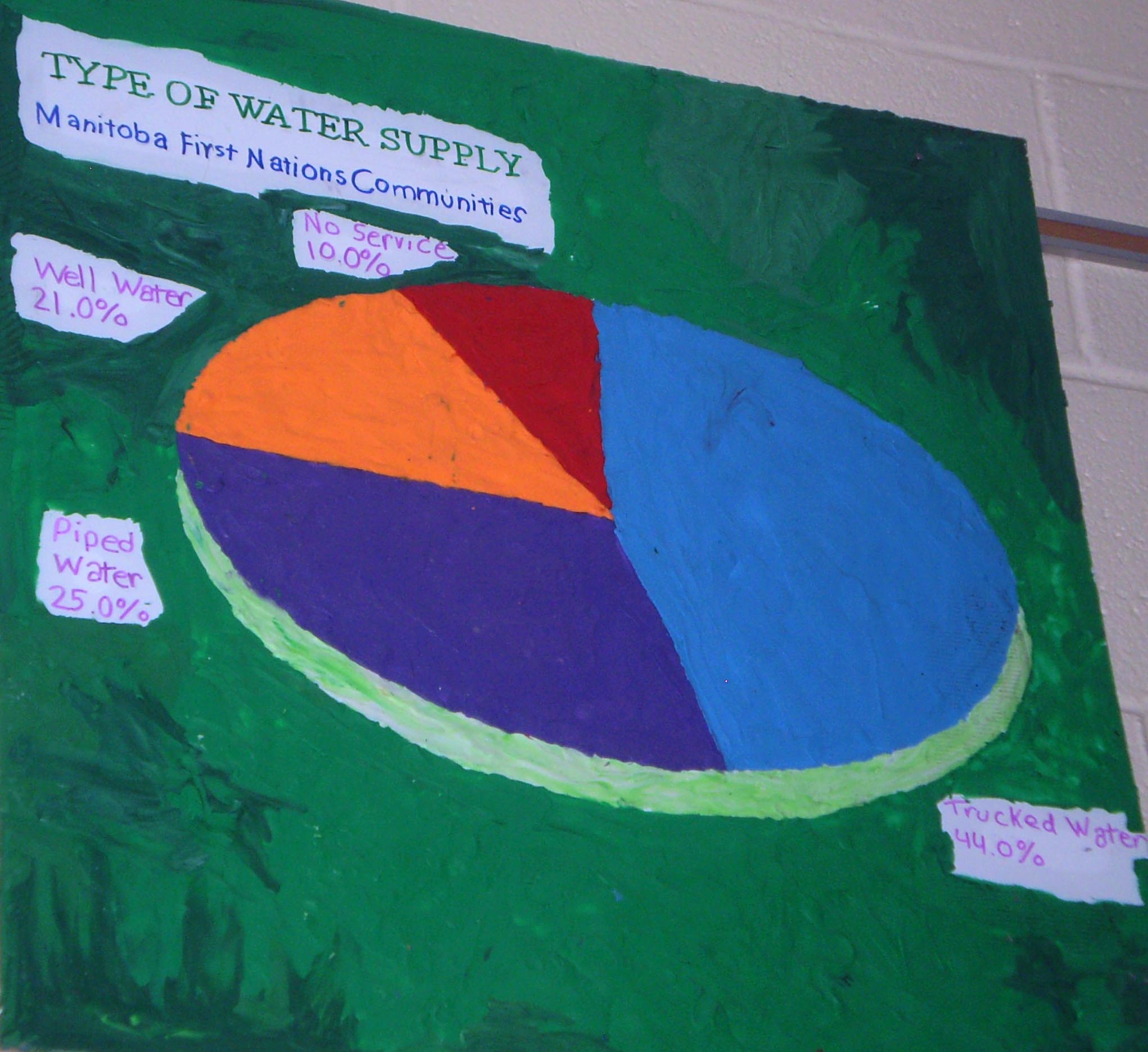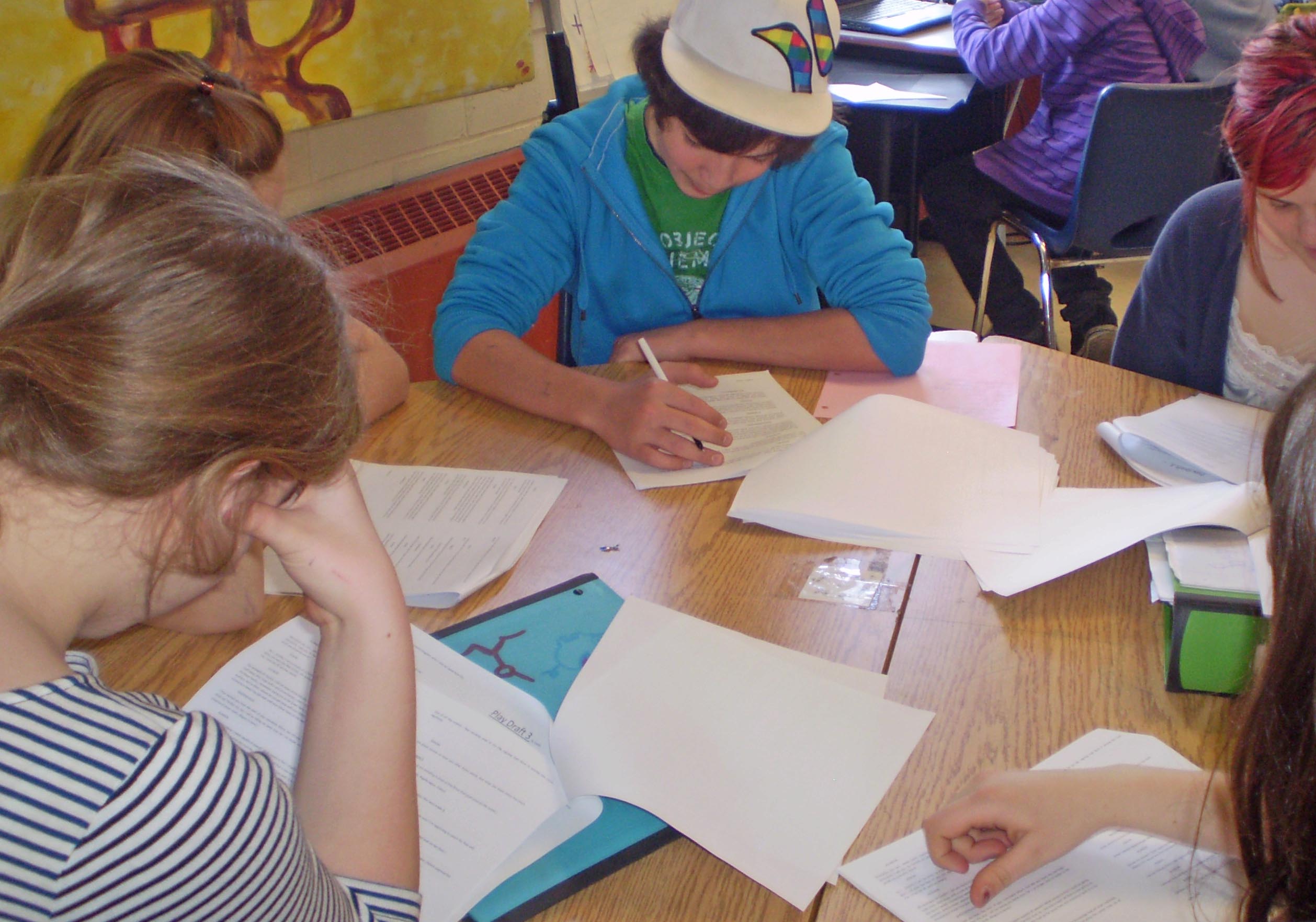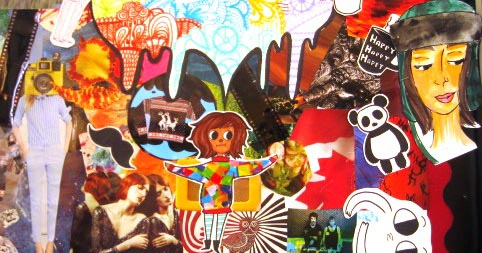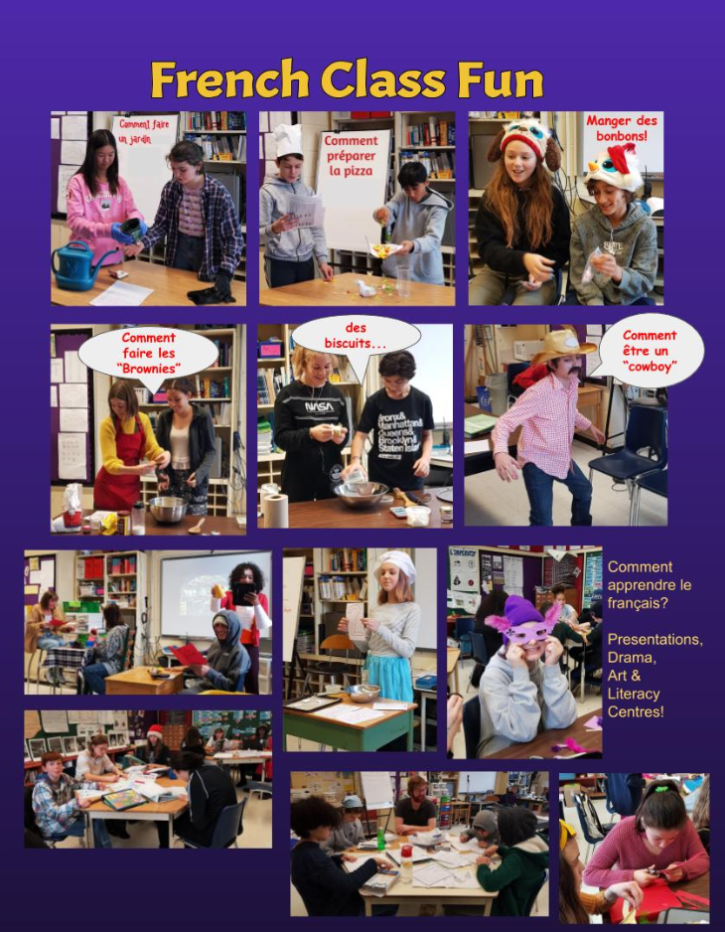At City View, we cover the mandated Ontario Curriculum in conventional courses like art, math, music, and French, but we deliver these courses through an equity/justice lens. We have also added some special courses of our own.
Ontario Curriculum Courses
Math & Science 
In math and science, students learn the same skills as students anywhere in Ontario – data analysis, separating the components of mixtures, etc. – but use content that is about social justice and power- for example, plotting the proposed Northern Gateway Pipeline using Cartesian coordinate system, looking at wage labour using algebra, and using exponents to explore very big budget lines. In science, the unit Water Systems, became a unit on water systems and conflict, and we looked at water on First Nations Reserves, what happened with Hurricane Katrina and New Orleans, privatization of water in Bolivia, aquifers under the West Bank and the conflict between Israel and Palestine
Language Arts

Writing: In writing, students have the opportunity to choose topics and themes that they wish to explore both in fiction and non-fiction writing. Students learn the power of words to articulate concepts of justice and equity, and they learn to cultivate their authentic voice through the editing process. Students write essays, poetry, and even a 20-page script for a play.
Reading: Literature Circles discussions are small group reading circles where we explore themes of justice such as Black and Indigenous history, Residential schools, the impacts of war, the Holocaust and other global issues through Literature. Many of these books also connect to learning in subject areas like geography, history, and science.
Media: Students learn critical media literacy skills by analyzing media and creating their own. For example, the Grade 7s create the brochures that we hand out during the White Ribbon Outreach. The Grade 8s final Independent Study Project is a documentary or zine on a justice issue.
French: In French, we do a reading unit on anti-bullying; explore the politics of food through the 100 mile diet unit; and have explored the Rights of the Child.
Social Studies
Geography: In Grade 7, we focus on Physical Geography, and explore how humans use and affect our natural environment. In Grade 8, we learn about Human Geography, and about what kinds of factors influence our choices and circumstances. We sometimes do a model united nations assembly.
History: As historians, we also explore issues of power and justice. As much as possible, we examine primary texts as sources of historical knowledge, and consider questions such as “who is telling the story?”, “what might be possible biases in this representation?” and “whose voices are we not hearing and why not?” We use role play to try to “hear” as many voices as possible, and to understand the many perspectives of historical events. We explore how differences in power resulted in certain outcomes, and wonder what the outcome might have been if different voices had been considered. What electoral system might replace “representation by population” if women’s perspectives had been considered at the time of Confederation? Would Louis Riel still have been hanged if his trial hadn’t been moved to Regina, where he faced an all-white all English-Canadian jury? How have historical decisions such as the Numbered Treaties led us to a series of ongoing crises such as the one in Attawapiskat?
Fine Arts

Art: In visual arts, students apply the elements and principles of design to projects which communicate messages about issues such as overconsumption, peace, poverty, and environmental destruction to name a few.
Music: Our young musicians explore the ways that music can be transformative. We have a set of guitars and this year, have added violins to our programming.
Drama: Drama is part of many classes. We use drama in French, in Literature Circles, and in History to explore and convey meaning. We also have a dedicated drama class where students collaborate to create dramatizations on issues important to them. We explore what is happening in the news, in our communities, in our lives.

Physical and Health Education
At City View we have a non-competitive sports program, which is fun for everyone because there is no winner and no loser so nobody feels bad. We still play normal sports such as basketball and soccer and dodge ball, but we play fun variations of those games to make it non-competitive. At the beginning of the year we have a class vote on which activities we will do over the course of the year. It is a good system because we do sports and activities that everyone likes, if you don't like the sport that we are playing at a certain point, next month it will be one that you love. It is very balanced in terms of activities that everyone enjoys.
Special City View Courses
Film Studies (part of Media Studies)
Once per week we watch films based on a theme and focus on broader issues by analyzing, reflecting and discussing them in class.
- In Grade 7, the topics are Consumerism (environmental impact, media influence, consumer choices in food and fashion), Gender (socially constructed gender norms) and Racism (history of slave trade, colonialism, civil rights, Black Lives Matter movement). Examples of films: Addicted to Plastic, Girl Rising, Ma Vie en Rose, .
- In Grade 8, the topics of power, non-violent direct action, political ideologies, scapegoating, role of the bystander, anti-semitism (historical and current), conformity and obedience are studied through investigating the conditions that led to the Holocaust. Examples of films: Gandhi, The Longest Hatred, Dead Poets’ Society, The Wave
- City View also participates in the annual Hot Docs Festival through Docs in Schools.
Conflict Resolution & Mindfulness (part of Health Class)
In this class, students work over their two years on team building exercises and learn some important techniques for resolving conflicts. Half of the course is dedicated to mindfulness using the curriculums, "Mind-up" and "Learning to Breathe" which helps students to better manage stress and to be more self-aware and mindful of their choices.
- Grade 7: effective communication skills, I-messages, active listening, practicing self-awareness, de-escalation strategies, personal and interpersonal problem solving
- Grade 8: examining power and privilege, activism, social and global conflicts
Discussion Classes (part of Health Class)
Once a week, all City View students take part in a group discussion with their classmates. During this time, students are encouraged to express their feelings, thoughts, stories and perspectives on life. Discussion is important because it gives students a chance to address any questions or concerns that they have about student life at City View. If there is a situation going on at school students can express their feelings toward that situation, or resolve the concern with some help from the teacher and classmates. Not only does discussion help to prepare students for the future, as they are able to communicate their thoughts and opinions clearly and confidently, it also helps one develop listening and speaking skills. During Discussion students are also able to share any personal problems that they have to deal with. These discussions provide a springboard to the Health topics that are covered in the curriculum.
Grade 8 Media Studies Project
All students in Grade 8 undertake an Independent Study Project (ISP) based on a social justice issue of their choosing. They produce a media product (video documentary, radio documentary, zine, web page, etc.) that integrates source material from a minimum of three experts in the field. One critical aspect of the project is the ‘Call To Action’, which must engage the class in making the world more fair or more just. Prior projects have included the We Give Consent Campaign (to include the topic of consent in the Ontario Health Curriculum), Students Against Carding (to challenge the Toronto Police Services to end the practice of carding), a public health campaign to include HPV vaccination for boys, and many other meaningful project topics.